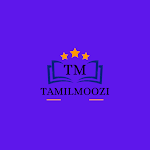
Thus
when the national movement was inits ebb, Annie Besant, an Irish lady
and leader ofthe Theosophical Society, proposed the HomeRule Movement on
the model of Irish HomeRule League. She started Home Rule Leaguein 1916
and carried forward the demand forhome rule all over India. G.S.
Arundale, B.P.Wadia and C.P. Ramaswamy assisted her inthis campaign.
They demanded home rule with
only a nominal allegiance to British
Crown.She started the newspapers New India andCommonweal to carry
forward her agenda. Sheremarked, “Better bullock carts and freedomthan a
train deluxe with subjection”. Under thePress Act of 1910 Annie Besant
was asked to payhefty amount as security. She wrote two books,How India
wrought for Freedom and India: A Nation and a pamphlet
onselfgovernment.Following the Jallianwala Bagh MassacreGeneral Dyer who
was responsible for it wasnot only acquitted of all charges but
rewarded.After the First World War the Caliph of Turkeywas humiliated
and deprived of all powers.To restore the Caliph the Khilafat
Movementwas started. Muslims who had largely keptfrom the nationalist
movement now joinedit in huge numbers. In Tamil Nadu KhilafatDay was
observed on 17 April 1920, with ameeting presided over by Maulana
ShaukatAli. Another such conference was held atErode. Vaniyambadi was as
the epicenter ofKhilafat agitation.
As
part of the non-cooperation movement,in many places, cultivators
refused to pay taxes.A no-tax campaign took place in Thanjavur.Councils,
schools and courts were boycotted.Foreign goods were boycotted. There
were anumber of workers’ strikes all over region, manyof them led by
nationalist leaders. One of theimportant aspects of the movement in
Tamil Naduwas the temperance movement or movementagainst liquor. In
November 1921 it was decidedto organise civil disobedience. Rajaji,
SubramaniaSastri and EVR were arrested. The visit of Prince
of Wales
on 13 January 1922 was boycotted. Inthe police repression two were
killed and manyinjured. The Non-Cooperation Movement waswithdrawn in
1922 after the Chauri Chaura incident in which 22 policemen were
killedFollowing the withdrawal of the Non-Cooperation Movement, the
Congress wasdivided between ‘no-changers’ who wanted tocontinue the
boycott of the councils and ‘pro-changers who wanted to contest the
electionsfor the councils. Rajaji along with other staunchGandhian
followers opposed the council entry.Along with Kasturirangar and M.A.
Ansari, Rajajiadvocated the boycott of the councils. Oppositionto this
led to the formation of the Swaraj Partywithin the Congress by
Chittaranjan Das andMotilal Nehru. In Tamil Nadu the Swarajists wereled
by S. Srinivasanar and S. Satyamurti.
When the Viceroy did not accept thedemands put forward by Gandhi, he launchedthe Civil Disobedience Movement. Rajajiorganised and led a salt satyagraha marchto
Vedaranyam. The march started fromTiruchirappalli on 13 April 1930 and
reachedVedaranyam in Thanjavur district on 28 April.A special song was
composed for the marchby Namakkal V. Ramalinganar with the lines,“A War
is ahead sans sword, sans bloodshed...Join this march.” Despite a brutal
crackdownby the police, the marching satyagrahis wereprovided a warm
reception along the route.On reaching Vedaranyam 12 volunteers underthe
leadership of Rajaji broke the salt law bypicking up salt. Rajaji was
arrested. T.S.S. Rajan,Rukmani Lakshmipathi, Sardar Vedarathnam,C.
Swaminathar and K. Santhanam were amongthe prominent leaders who
participated in theVedaranyam Salt Satyagraha.One of the controversial
measures of Rajajiwas the introduction of Hindi as a compulsorysubject
in schools. This was considered to bea form of Aryan and North Indian
impositiondetrimental to Tamil language and culture,and therefore caused
much public resentment.E.V.R. led a massive campaign against it.He
organised an anti-Hindi Conference atSalem. It formulated a definite
programmeof action. The Scheduled Castes Federationand the Muslim League
extended its supportto the anti-Hindi agitation. Natarajan
andThalamuthu, two of the enthusiastic agitatorsdied in prison. A
rally was organised fromTiruchirappalli to Madras. More than
1200protestors including E.V.R. were arrested.After the resignation of
the Congress Ministry,the Governor of Madras who took over thereigns of
administration removed Hindi ascompulsory subject.
8th class|social|Important Question |TM







0 கருத்துகள்